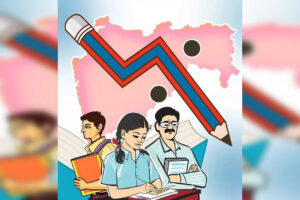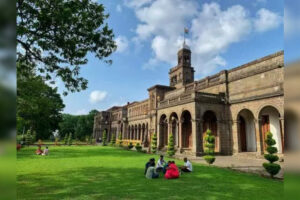Daily News Analysis – 14 June 2025
District & State Level Cells: Forest Rights Act, 2006
The Union Ministry of Tribal Affairs has sanctioned the establishment of 324 district-level and 17 state-level Forest Rights Act (FRA) cells under the Dharti Aba Janjatiya Gram Utkarsh Abhiyaan. These administrative bodies are intended to facilitate the implementation of the Forest Rights Act, 2006, especially in regions where a high percentage of claims remain unresolved. Unlike statutory committees such as Sub-Divisional Level Committees and District Level Committees formed under the FRA framework, these FRA cells are non-statutory bodies created to support documentation, data handling, and streamline claim processes. Critics fear they may lead to parallel governance structures, accountability dilution, and unnecessary bureaucracy.
Israel-Iran Conflict
Following a critical IAEA resolution accusing Iran of nuclear non-compliance—the first in over two decades—Israel launched Operation Rising Lion, a strategic military initiative aimed at crippling Iran’s nuclear and missile capabilities. Described as an “existential battle,” this marks a sharp escalation in the decades-long Israel-Iran hostility. Iran’s strategy of deploying proxy militias across the Middle East—such as Hezbollah, Hamas, and the Houthis—has long threatened Israel. This indirect warfare helped Iran avoid direct retaliation while expanding its influence. However, Israel’s recent shift to targeting Iran directly signifies a new approach, one with global implications: oil price surges, disruptions in maritime trade, humanitarian crises in fragile states, and increased geopolitical risks for nations like India, which imports over 60% of its crude oil from the region.
India and France Agree to Intensify Cooperation
External Affairs Minister S. Jaishankar and his French counterpart met recently to discuss strategic bilateral collaboration in defence, security, nuclear energy, and digital integration. The India-France Strategic Partnership, initiated in 1998, now encompasses Rafale jets, Scorpene submarines, the Horizon 2047 roadmap for co-developing defence tech, and UPI implementation in France. France also plays a crucial role in ISRO’s missions and nuclear power development, with both nations agreeing to work on Small Modular Reactors (SMRs). Despite such collaboration, hurdles remain—trade imbalance, liability issues under Indian nuclear law, and occasional divergence in global geopolitics. Nevertheless, shared goals in Indo-Pacific stability and multilateralism drive the deepening of this alliance.
Make Digital Literacy Part of Curriculum to Curb Online Child Sexual Abuse
A pilot study by ChildFund India and the Karnataka State Commission for Protection of Child Rights (KSCPCR) has recommended integrating digital literacy and online safety into primary education. The study, involving 903 children aged 8 to 18, reported a significant rise in online child sexual abuse, worsened by pandemic-induced digital exposure. Emerging technologies such as AI, deepfakes, and voice cloning have exacerbated threats. Although legal protections exist—like POCSO and Section 67B of the IT Act—cultural stigma and enforcement challenges persist. Experts advocate for consent education, tech-use ethics, AI-aware laws, and open dialogue between children, parents, and educators to build a digitally safe society.
Agri Stack Under Digital Agriculture Mission (DAM)
The Ministry of Agriculture hosted a National Conference on Agri Stack under the Digital Agriculture Mission (DAM), promoting a digital ecosystem that integrates land records, farmer IDs, crop details, and government schemes. The Agri Stack aims to deliver personalized, efficient, and transparent agricultural services. Key features include the Kisan Pehchan Patra (Digitally Verifiable Credential), integration with DigiLocker, AI-powered multilingual chatbots, and ₹6,000 crore funding under Special Central Assistance. By combining Krishi Decision Support Systems and geospatial data, the DAM seeks to optimize value chains, improve crop insurance, and revolutionize digital service delivery in agriculture.
Servants of India Society
Conflict has emerged between Pune’s Gokhale Institute of Politics and Economics and the Servants of India Society (SIS) over allegations of financial mismanagement and control of a joint bank account. Founded in 1905 by Gopal Krishna Gokhale, the SIS was created to promote education, social welfare, and rural development. Members took vows of renunciation and served the nation selflessly. Gokhale, a mentor to Mahatma Gandhi and moderate Congress leader, believed in gradual reform under British rule as a pathway to self-governance. This legacy is now at risk amidst administrative disputes, raising concerns about the preservation of historic institutions.
Gyan Post Service
The Department of Posts has launched ‘Gyan Post’, a dedicated postal service aimed at delivering educational, cultural, and religious books affordably across India. With pricing from ₹20 for 300g to ₹100 for 5kg packages, the initiative seeks to enhance access to printed knowledge materials, particularly in underserved areas. Surface-based delivery (road or rail) reduces costs, while restrictions ensure only educational content is delivered—excluding personal letters or journals. This initiative complements the digital divide efforts by offering an offline channel to educational resources.
India Abstains from Gaza Ceasefire Resolution in UNGA
India abstained from voting on a UN General Assembly resolution demanding a permanent ceasefire in Gaza. The resolution, passed with 149 votes in favor, condemned humanitarian violations, called for the release of hostages, and demanded unfettered aid access. India’s abstention—its fourth in three years—represents a shift from its December 2024 position and reflects a nuanced diplomatic balance. While India supports a Two-State solution and recognized Palestine in 1988, its strategic ties with Israel have deepened. The move underlines India’s commitment to neutrality while safeguarding broader geopolitical interests.
Virtual Digital Assets (VDAs)
India’s Income Tax Department is investigating potential tax evasion via Virtual Digital Assets (VDAs) such as cryptocurrencies and NFTs. Under the Finance Act 2022, VDAs attract a flat 30% tax on gains and a 1% TDS per transaction. To encourage compliance, the Central Board of Direct Taxes (CBDT) employs a “NUDGE” framework—an approach built on behavioral insights and voluntary disclosure. This highlights the government’s dual approach: ensuring legal oversight while not stifling digital innovation in the crypto and blockchain space.
AviList
AviList, the world’s first unified global checklist of bird species, has been launched by the International Ornithologists’ Union. It consolidates existing taxonomies (like IOC and Clements) and is based on morphology, genetics, vocalizations, and ecology. Accessible in .csv and .xlsx formats, AviList enhances international conservation efforts by standardizing bird classification. It supports policy development, biodiversity tracking, and effective species protection strategies globally—a milestone for avian research and environmental governance.
Israel-Iran Tension Impacts India’s Tea Exports
India’s tea industry is feeling the heat from the Israel-Iran conflict. With tea exports rising to 254.67 million kg in 2024—a 9.92% increase—West Asia, especially Iraq and Iran, has emerged as a major market. Disruptions in trade due to regional tensions threaten export volumes and earnings. India, the second-largest tea exporter after China, primarily exports black tea from Assam and West Bengal. Regulatory oversight by the Tea Board of India is expected to be critical in navigating geopolitical disruptions and safeguarding farmer incomes.
Oil Palm Cultivation
Telangana is witnessing a rapid expansion of oil palm cultivation, transforming rural livelihoods and farm economics. Oil palm, a perennial crop yielding the highest edible oil content, is sourced primarily from West Africa. It thrives in humid climates with well-drained loamy soils. Used in foods, cosmetics, biofuels, and oleochemicals, palm oil offers both economic and nutritional benefits. India imports much of its palm oil, but states like Telangana and Andhra Pradesh are becoming major domestic producers. The government’s support, however, must balance ecological concerns and sustainable agricultural practices.
Totapuri Mangoes
A dispute between Karnataka and Andhra Pradesh over Totapuri mango trade has escalated into a federalism-versus-protectionism debate. Chittoor district in Andhra Pradesh banned mango inflows from Karnataka, impacting farmers dependent on AP’s pulp processing units. This contravenes Article 301 of the Indian Constitution, which ensures free trade across state borders. With no legislative backing or presidential assent as required under Article 304(b), the ban is legally questionable. The standoff affects farmer livelihoods, supply chains, and sets a concerning precedent for interstate trade disputes.
Pradhan Mantri Matsya Sampada Yojana (PMMSY)
At the Inland Fisheries and Aquaculture Meet 2025, Union Minister Parshottam Rupala highlighted the importance of the Pradhan Mantri Matsya Sampada Yojana (PMMSY) in revitalizing India’s fisheries sector. Launched in 2020, PMMSY aims to address critical gaps in production, value chain infrastructure, and fisher welfare. With subcomponents addressing everything from post-harvest management to regulatory frameworks, the scheme represents a holistic strategy for a sector often overlooked despite its economic potential. Collaboration between central and state agencies is crucial to realize its goals before the scheme’s official end in 2025.
Army Successfully Tests Rudrastra
The Indian Army has successfully tested Rudrastra, a vertical takeoff and landing (VTOL) drone developed indigenously by Solar Aerospace and Defence Limited. Combining helicopter-like agility and aircraft-like endurance, Rudrastra can carry out precision strikes over 50 km and has a full operational range of 170 km. It marks a significant leap in India’s unmanned aerial warfare capabilities, offering a stand-off, risk-free weapon system that aligns with the country’s Atmanirbhar Bharat vision in defence innovation
Source link



